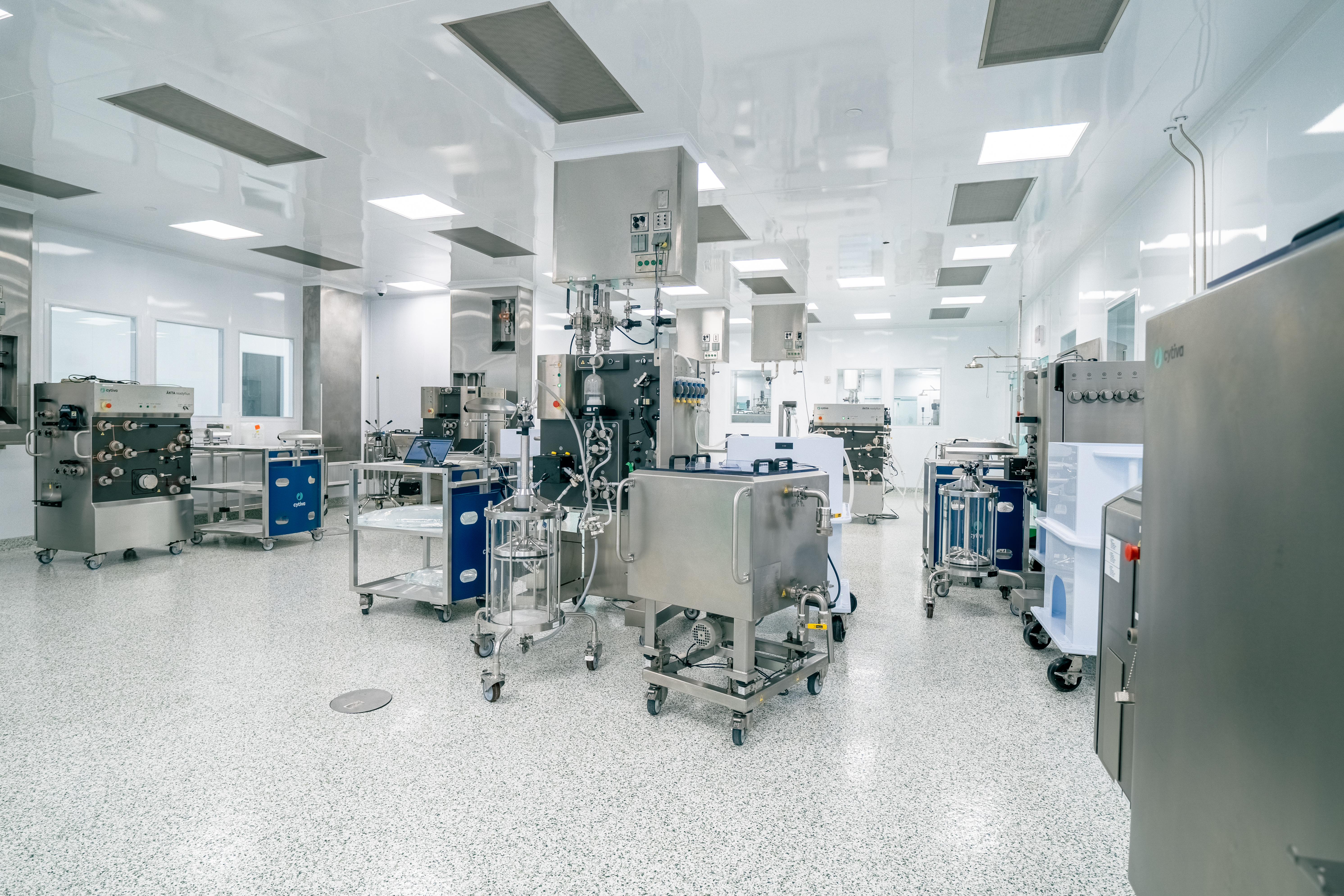cGMP Grade
Plasmid DNA & Endonucleases manufactured to the highest standards

We produce cGMP plasmid and endonucleases in our segregated ISO-classified manufacturing suites equipped with independent air handling systems and unidirectional airflow, managed by best-in-class electronic systems to ensure the highest quality product. Our cGMP process uses up to 200L single-use fermenters to meet the industry's growing needs.
Details:
- Robust process optimization to achieve desired critical quality attributes while maximizing yield
- Manufacturing in segregated, validated clean rooms (ISO 7/8) with 24/7 monitoring
- Defined and validated critical process parameters (temperatures, times, agitation rates, etc.)
- Full-scale engineering and process validation capabilities to enable cGMP production
- Procurement and management of cGMP-grade materials sourced from audited and qualified suppliers
- Client-specific batch record and documentation with CoA upon full quality release
- eDMF can be filed with appropriate regulatory agency upon request
- Generation, characterization, and storage of master and working cell banks
- Stability Studies (Upon Request)
• Viability determination (Cell Titer)
• Cell bank purity (Plating on TSA and SDA)
• Host species identity (16S rDNA sequencing)
• Antibiotic sensitivity (CFU determination on multiple antibiotic and antibiotic-free plates)
• Detection of lytic bacteriophage (COA)*
• Detection of lysogenic bacteriophage (COA)*
• Host strain genotype or Plasmid Mapping (Verification of at least 3 genetic markers)*
• Plasmid retention (CFU determination on multiple antibiotic and antibiotic-free plates)*
• Plasmid identity (Sanger sequencing)*
*Out-sourced
• Appearance (USP <790>)
• Purity Ratio (A260/A280 by UV spectrophotometry)
• Concentration (USP <857>)
• Restriction digest (Fragment analysis by restriction enzyme mapping)
• % DNA Supercoiled (Densitometry)
• Plasmid Identity (Size by Agrose gel electrophoresis)
• Plasmid Sequencing* (Sanger Sequencing)
• Residual host genomic DNA (qPCR)
• Residual host cell protein (ELISA)
• Residual host RNA (Fluorescence)
• Endotoxin (Kinetic chromogenic LAL)
• Bioburden (USP <61>)
• Sterility (USP <1071> or USP <71>)
• pH (USP <791>)
• Conductivity (USP <644>)
• Osmolality (USP <785>)
• Mycoplasma* (RT-PCR)
*Out-sourced
• Viability determination (Cell Titer)
• Cell bank purity (Plating on TSA and SDA)
• Host species identity (16S rDNA sequencing)
• Antibiotic sensitivity (CFU determination on multiple antibiotic and antibiotic-free plates)
• Detection of lytic bacteriophage (COA)*
• Detection of lysogenic bacteriophage (COA)*
• Host strain genotype or Plasmid Mapping (Verification of at least 3 genetic markers)*
• Plasmid retention (CFU determination on multiple antibiotic and antibiotic-free plates)*
• Plasmid identity (Sanger sequencing)*
*Out-sourced
• Appearance (USP <630>)
• Concentration (USP <857>)
• Identity (Western Blot)
• Purity
• Aggregation
• Activity, in vitro
• Residual host cell protein (ELISA)
• Residual DNase (Fluorometric)
• Residual RNase (Fluorometric)
• Endotoxin (Kinetic chromogenic LAL)
• Bioburden (USP <61>)
• Sterility (USP <1071> or USP <71>)
• Mycoplasma* (RT-PCR)
*Out-sourced